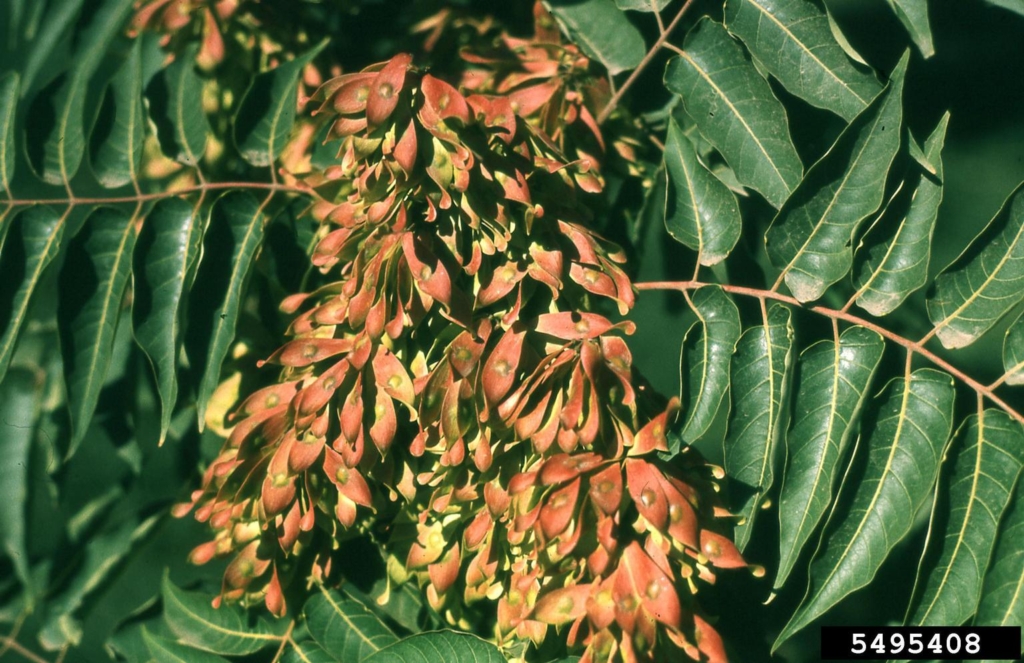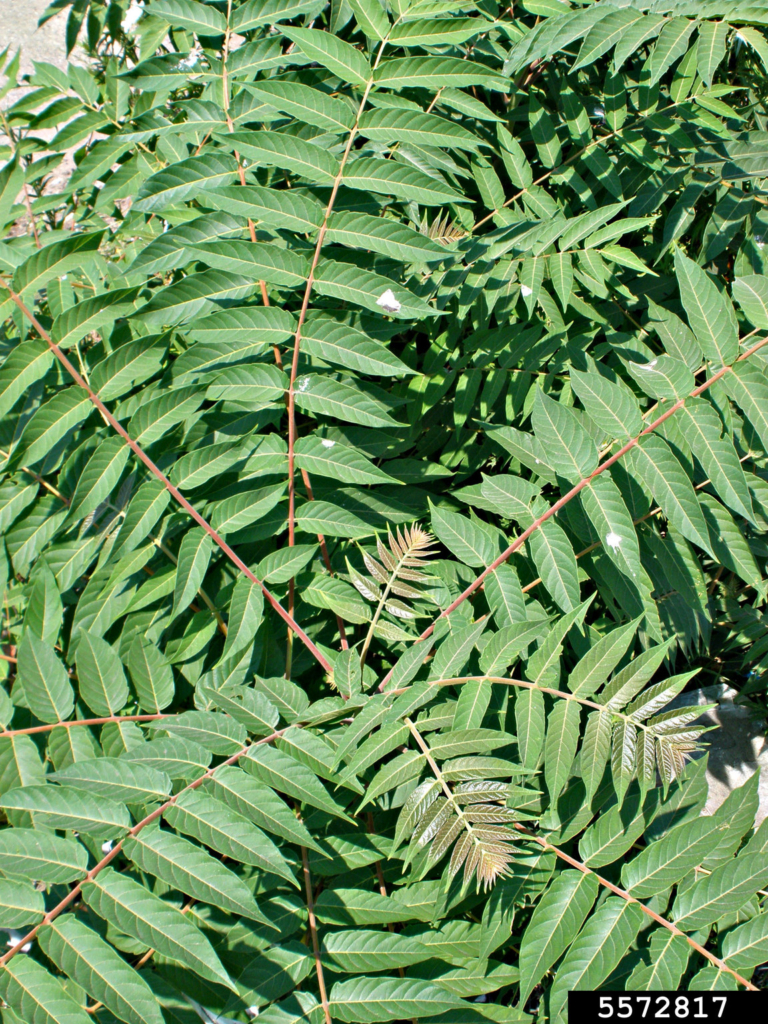Tree of Heaven
Ailanthus altissima
Plant Description
Because it has compound leaves with numerous leaflets, this deciduous tree can be confused with sumac, black walnut, or ash. Tree of Heaven’s leaflets have smooth margins with 1-2 bumps at their bases. Female trees produce winged seeds (samaras).
Plant Details
| Life Forms | |
|---|---|
| Habitats | |
| ODA Listing | |
| Soil and Moisture Conditions | |
| Suggested Actions | |
| Shade Preference | |
| Mature Height | 25-80' |
| Distribution | Found across much of the U.S., with scattered distribution in western Oregon, along the Columbia River, and in far eastern Oregon. |
| Control | Hand pulling young seedlings works if the whole root system is removed. Cutting and mowing do not work as the trees send up many suckers and sprouts. Tree of heaven cannot tolerate shade. |
| Disposal Methods | Remove cut stems from moist ground to avoid root spread. |
| Reproduction and Spread | Spreads by seeds (over 300,000 per plant annually) and forms thickets via root suckering. |
| Introduced | Native to China, introduced to U.S. in late 1700s. First documented in Oregon in 1904. |
| Look Alikes | Sumac, Black Walnut, Ash |
| Impact | Creates clonal colonies with dense root systems with root suckers that can emerge up to 50 feet way from the parent tree. It thrives in disturbed sites, is difficult to control, and produces chemicals that prevent the establishment of other plants. |
| More Info |
© Marion Soil and Water Conservation District. All Rights Reserved.


